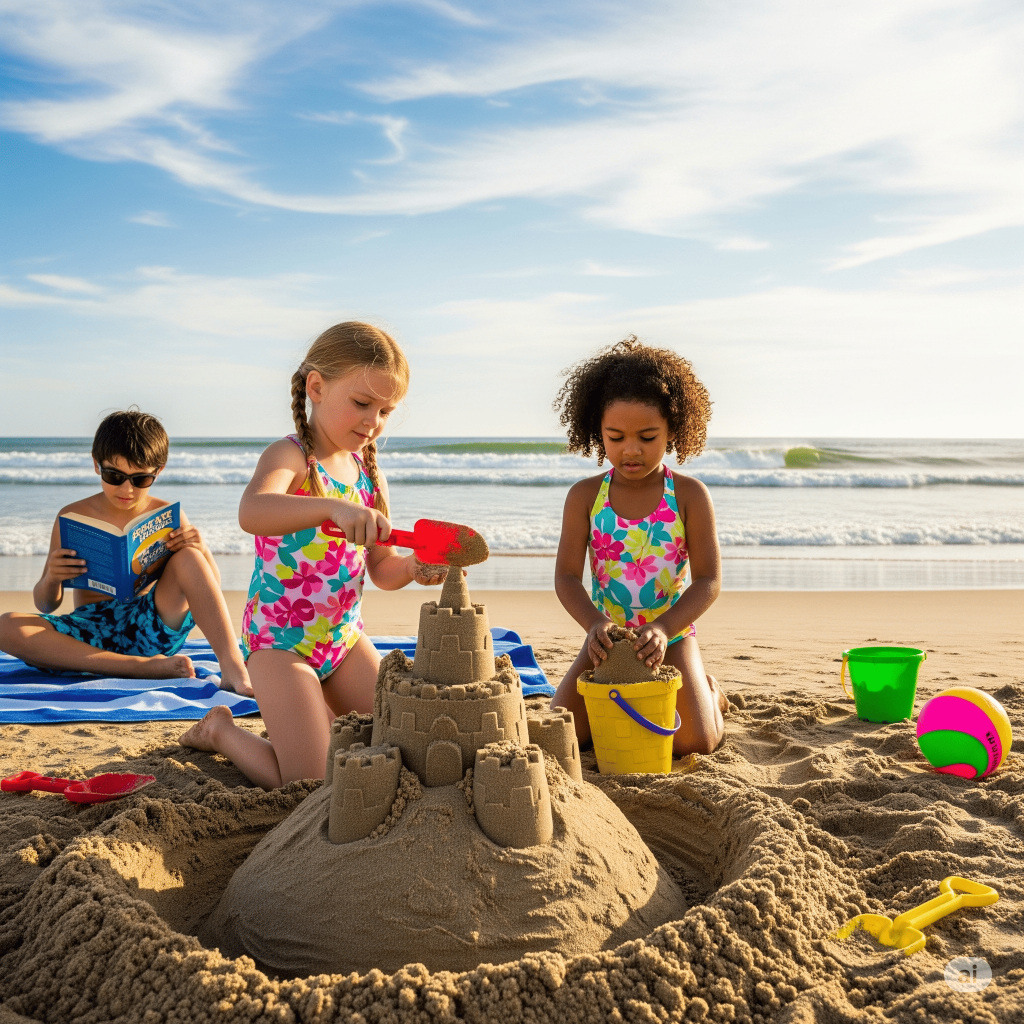
School Holidays all over the world
Discover how school holidays differ worldwide. In Canada and Australia, students enjoy extended breaks with opportunities for reading challenges and early work experiences. In contrast, the UAE offers shorter vacations but emphasizes extracurricular activities and family time. This article explores these diverse approaches to school holidays.
Author: Lyudmila Chirkova
What happens if a 10-year-old student is given an all-access travel pass and sent on a journey across Russia? Hard to imagine—but in Switzerland, for example, children actually spend their summer vacations this way. So how do other countries handle summer breaks? We gathered firsthand insights.
Mexico: The wealthy travel to Europe, others stay home
Diana Bespalova, Mexico City, mother of three, 16 years in the country:
Summer holidays in Mexico are, let’s say, unstable. This year they lasted a month, but sometimes they are longer. In public schools, the academic year ended on July 28 (private schools finished slightly earlier), and the new year begins on August 29.
Mexico has strong class divides. Wealthy parents take their children to Europe or the USA for the summer. Families with fewer resources leave children at home, either alone or with grandparents.
There is no organized system of children’s camps in Mexico. A Russian girl once ran activities for several weeks in Mexico City. Private organizations occasionally host half-day camps lasting 2–3 weeks. Public schools offer no organized activities.
Poland: Summer holidays are a headache for parents
Anastasia Lepeshova, Warsaw, mother of three, 4 years in the country:
In Poland, summer break is a month shorter than in Russia—children have July and August off. During these months, schools, kindergartens, and nurseries are mostly closed. Parents struggle to plan activities. Popular destinations are the mountains—Tatra and Carpathians—and the sea in Gdańsk.
Australia: Camps, ocean, friends
Tatiana Morozova, Sydney, mother of two, 7 years in the country:
In Australia, summer falls in December–January. Families often take holidays during Christmas, going to camps or seaside destinations depending on budget. Children under 12 cannot stay home alone. Grandparents rarely babysit; instead, kids may stay with friends’ parents.
Netherlands: Grandparents and language camps
Julia George, Emmen, mother of three, 3 years in the country:
Holidays last 1.5 months, depending on the province. Children spend time with grandparents or go on vacation with parents. Free activity clubs or international language camps are available, usually in two-week sessions.
Switzerland: “Holiday passport” and mountain adventures
Olga Belyaeva, Lausanne, mother of two, 6 years in the country:
Swiss holidays vary by canton, usually just under two months. Parents rarely take time off, and children attend public or private camps. One popular option is the “holiday passport”—a travel pass valid for weeks, letting children navigate the country independently, attend excursions, and meet peers. Kids become self-reliant from age seven.
Spain: Diverse activities, costly
Yana Ukhorskaya, Madrid, mother of two, 5 years in the country:
Schools organize paid themed camps, ranging from €100–150 per week. Municipal camps exist but are also paid. Parents often rely on grandparents, nannies, or other solutions.
UAE: Unified holidays, expats leave
Ekaterina K., Abu Dhabi, mother of two, 1 year in the country:
All schools follow the same calendar, ending early July and resuming late August. Expat families often travel abroad, while those staying rely on paid camps or nannies.
USA: No centralized system
Victoria L., New York suburbs, mother of two, 5 years in the country:
Holidays vary by state and school. Private half-day camps exist but are expensive. Most teens are left to manage themselves, while younger children stay with parents or nannies.
Canada: Libraries and official work
Katerina Mukhina, Langford, mother of two, 1.5 years in the country:
Summer holidays run from late June to early September. Children attend day or overnight camps, participate in educational trips, and visit libraries with reading challenges. Teens from age 12 may work officially, earning money from dog-walking, retail, or waitressing.
Georgia: Mountains, sea, and relatives
Antonina Zakharova, Tbilisi, mother of two, 4 years in the country:
Children either stay with grandparents or go on vacation. Camps are usually paid and take place outdoors with instructors.
Montenegro: Children explore independently
Alla Kotova, Budva, mother of one, 5 years in the country:
Summer camps are common, but many children aged 5–6 freely play outside, visiting friends’ homes, while parents are busy with tourism.
Taiwan: Holidays are learning time
Nikolai Gorobets, Taipei, father of two, 14 years in the country:
Summer holidays last about two months. Children often attend paid tutoring programs focusing on math, Chinese, and English. Independent summer camps are rare, and longer programs over two weeks are hard to find.